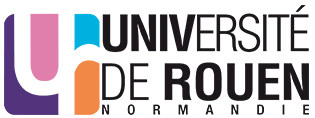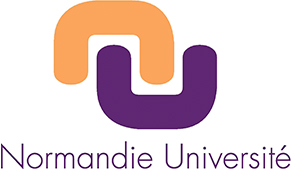Appel à communications « The Child and the Book Conference Rouen 2024 »
Making, Building, Mending: Creativity and Craftsmanship in Children’s Literature and Culture
2-4 May 2024, University of Rouen Normandy, Campus Pasteur
In the past, bookish children have often been contrasted – sometimes fairly crudely – with their more practically-oriented counterparts, as if an interest in language, literature, and the world of fiction was necessarily incompatible with the ability and inclination to use one’s hands in order to “make” things.
Yet children’s ability to find and collect various materials and use them for all kinds of creative projects has been observed in past centuries and used for diverse educational purposes. Children’s literature itself abounds with representations/celebrations of various types of crafts, showing child characters inventing and making things, or recycling old or discarded objects. Building huts or other forms of shelter, for instance, is a fairly common theme. But young protagonists may also engage in fabricating toys, in quilting or sewing, in drawing or writing. In some cases, adult figures can also be shown to invent and make wonderful things, such as a child could imagine them, going through the process of identifying suitable materials, collecting and recycling them, and designing uses for the newly fabricated objects.
Creativity and craftsmanship are notions that may also be applied to the publishing/making of the book itself, both in a concrete, materialistic way and in a more abstract conceptual sense. The child reader may be invited to manipulate the book in order to make sense of it. (S)he may be invited to interact with its contents, thus developing different scenarios, or recreating new works on the basis of existing ones.
This is particularly in evidence in video games or digital narrations, but even in older and more traditional formats, references to the various fabrication processes mentioned earlier (cooking, building, sewing, drawing, etc.) often operate as metaphors of childhood (with children as characters “in the making”, and fiction as a means to explore various would-be personae), as well as of the process of writing children’s literature itself (making new stories out of “old” adult material, piecing parts of a story together…).
Thus, creativity often – always? – involves some degree of recycling. Familiar works of art can be reproduced in different styles; old tales can be retold, sometimes with a twist, challenging old assumptions and offering new interpretations of well-known stories. Re-using old materials – be they stories, objects, tools, toys, etc. – gives them a new lease of life. While concerns with mending and repairing have acquired new relevance in the current eco-anxious context, they also resonate metaphorically with the need to be reassured that human beings, too, can be made whole again, or at least overcome whatever pains they may have had to go through. The healing dimension of engaging in craft and literature will therefore also need to be addressed by the conference.
Possible topics may include (but are not limited to):
- Representations of craftsmanship and creativity in children’s literature and culture
- Figures of childlike or child creators in children’s literature and culture
- Mending objects or people: figures of child healers
- The creative, experimental potential of childhood: children as artists
- Arts and crafts as expressions of the child’s or young adult’s agency and empowerment
- The healing, reconstructive function of children’s books and objects
- Figures of the child or young adult as constructs (cyborgs, hybrid beings, etc.)
- Metaphors of artistic and literary creation, and the metafictive dimension of recycling old materials into new creations
- Writing, illustrating, translating children’s books as fabrication
- Exploring and showcasing the materiality of children’s books (especially in picture books, including sticker-books, pop-up books, leporellos or kamishibai)
- The child as (co-)maker/(co-)author of the book
- Constructing the child through the making/writing of the book
The conference “Making, Building, Mending: Creativity and Craftsmanship in Children’s Literature and Culture” will reflect academic diversity and host studies from across different fields of research, academic methods and cultural backgrounds. We welcome proposals for individual papers as well as panels. We particularly encourage graduate students and other early-career scholars to apply.
Please send an abstract of 500 words and a short biography (100 words) as 2 attached Word documents to cbc2024@univ-rouen.fr before 31 October 2023.
The conference will be held in person.
Panel proposals
Panel proposals should consist of 4 papers that focus on one aspect related to the main theme of the conference. The panel organiser should invite participants and evaluate each paper in the panel, but the panel as a whole and its individual papers will also be reviewed by external evaluators. For a panel proposal, the panel organisers should submit a short overview statement of the panel theme (about 500 words), a list of participants and the abstracts of their papers.
Abstracts
They should include the following information:
- author(s) with affiliation(s)
- title and text of proposal
- selected bibliography with 3-5 academic references
- 5 keywords
Submission information
- Deadline for submission: 31 October 2023.
- Notification of acceptance: December 2023.
- All submissions are blind reviewed by the members of the Reading Committee.
- All abstracts and papers accepted for and presented at the conference must be in English.
- Papers will be 20 minutes maximum followed by a 10-minute discussion.
Organising committee
- Dr. Sylvaine Bataille, University of Rouen Normandy
- Dr. Yannick Bellenger-Morvan, University of Reims-Champagne-Ardenne
- Dr. Florence Cabaret, University of Rouen Normandy
- Hasmig Chahinian, IBBY France/CNLPJ-BNF
- Dr. Anne Chassagnol, University Paris 8-Saint-Denis and Afreloce
- Dr. Jeanne Chiron, University of Rouen Normandy
- Dr. Virginie Douglas, University of Rouen Normandy and Afreloce
- Dr. Éléonore Hamaide-Jager, University of Artois and Afreloce
- Oleksandra Kosiuha, PhD candidate, University of Rouen/ University of Kherson, Ukraine
- Prof. Mathilde Lévêque, University Sorbonne Paris Nord and Afreloce
- Inès Naji, PhD candidate, University of Rouen and Afreloce
- Prof. Rose-May Pham Dinh, University Sorbonne Paris Nord and Afreloce
- Dr. Cécile Pichon-Bonin, CNRS/Université de Bourgogne and Afreloce
- Caroline Starzecki, PhD candidate, University of Rouen and Afreloce
- Élise Ternoy, PhD candidate, University of Artois/University of Rouen


